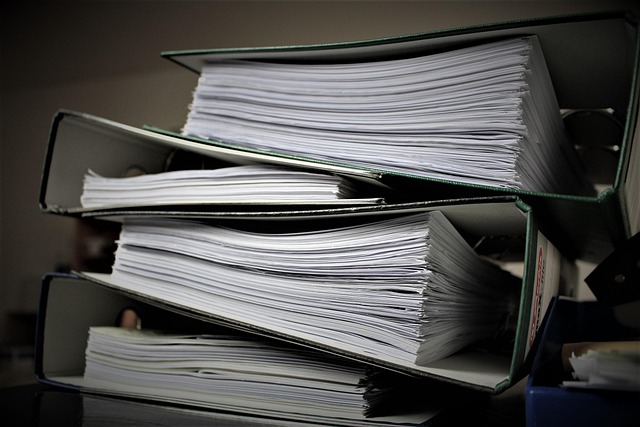Ensuring Accuracy: Translation Services for UK Environmental Compliance Documents
Translation services for UK Environmental Compliance Documents are critical for businesses navigating the UK's rigorous environmental regulations, avoiding legal non-compliance, and preventing potential environmental harm. Accuracy is paramount,…….

Translation services for UK Environmental Compliance Documents are critical for businesses navigating the UK's rigorous environmental regulations, avoiding legal non-compliance, and preventing potential environmental harm. Accuracy is paramount, requiring deep understanding of source/target languages, technical terminology, and cultural nuances. Specialized translation companies with in-country expertise, advanced tools like machine translation (MT) supported by human expertise (MTPE), and a proven track record are essential. Choosing such services minimizes errors, ensures legal soundness, and facilitates effective cross-border environmental data exchange.
In today’s globalised world, accurate environmental document translations are paramount for UK businesses navigating regulatory landscapes. With stringent ecological standards and a robust legal framework, ensuring precision in communication is crucial for compliance. This article explores the intricacies of translating UK environmental documents, from understanding the importance to tackling challenges, and offers practical insights on best practices, technology advancements, and key considerations when selecting translation services for seamless environmental compliance.
- Understanding the Importance of Accurate Environmental Translations
- The UK Regulatory Framework and its Language Requirements
- Challenges in Translating Environmental Documents
- Ensuring Quality: Translation Services for Environmental Compliance
- Best Practices for Accurate Document Translation
- Key Considerations when Choosing a Translation Provider
- Case Studies: When Inaccuracies Can Have Serious Consequences
- New Technologies in Machine Translation for Environmental Documentation
- Final Thoughts: Navigating the Path to Reliable Translations
Understanding the Importance of Accurate Environmental Translations

In the realm of environmental document translations, accuracy is paramount. UK environmental compliance documents often contain intricate and nuanced information that requires a deep understanding of both the source and target languages. Misinterpretations can lead to regulatory non-compliance, legal issues, and potential environmental harm, making precise translations critical for stakeholders across industries.
Translation services for UK Environmental Compliance Documents must go beyond mere word-for-word substitutions. Professional translators need to grasp the context, technical terminology, and cultural nuances specific to environmental regulations. They should also stay updated on evolving legislation and industry best practices to ensure that translated documents remain legally sound and effective over time.
The UK Regulatory Framework and its Language Requirements

The United Kingdom’s regulatory framework governing environmental compliance is stringent and multifaceted, demanding precise documentation to ensure adherence to laws like the Environmental Protection Act 1990 and various sector-specific regulations. For businesses operating within this jurisdiction or aiming to expand their activities, translation services for UK environmental compliance documents become indispensable tools. These translations must not only convey the meaning of technical terms but also capture the nuances and specific requirements set by regulatory bodies.
The language requirements in such documents are exacting, often necessitating expert knowledge of both the source and target languages. Professional translation services understand that environmental terminology can be highly specialized, with terms like “carbon footprint,” “renewable energy sources,” or “pollutant discharge” requiring accurate equivalents in the target language(s). Ensuring these translations meet the UK’s stringent standards is vital to avoid legal non-compliance and potential penalties.
Challenges in Translating Environmental Documents

Translating environmental documents presents unique challenges that go beyond simply converting text from one language to another. These documents often contain specialized terminology, complex regulatory frameworks, and nuanced scientific concepts that demand precision and expertise. Professional translation services for UK Environmental Compliance Documents must bridge the gap between technical languages and the target audience’s understanding while adhering to stringent legal and environmental standards.
One significant hurdle is ensuring accuracy in conveying ecological concepts accurately, as mistranslations can lead to misunderstandings or even legal complications. For instance, translating terms related to air quality, water pollution, or habitat preservation requires a deep understanding of the subject matter. Moreover, these documents frequently involve regulatory bodies with specific requirements and formatting standards, making it crucial for translation services to stay abreast of evolving legislation.
Ensuring Quality: Translation Services for Environmental Compliance

Ensuring Quality is paramount when it comes to translating UK Environmental Compliance Documents. The accuracy and precision of these translations are critical, as they directly impact how effectively environmental regulations are understood and followed across borders. Professional translation services dedicated to this field employ linguists with specialized knowledge in ecology, legislation, and regulatory frameworks.
These experts not only possess a deep understanding of the source text but also the cultural nuances and legal contexts necessary to render the content accurately. Advanced tools like terminology databases and machine translation platforms further enhance accuracy, ensuring consistency throughout the document. Remember, when it comes to environmental compliance, one misstep in translation can lead to severe consequences, so choosing reliable translation services is a vital step in navigating the complexities of international environmental regulations.
Best Practices for Accurate Document Translation

When it comes to UK environmental document translations, accuracy is paramount, especially within a highly regulated industry. To ensure precision, several best practices should be followed when engaging translation services for UK Environmental Compliance Documents. Firstly, select a translation company with expertise in this specific field, as they will have a deep understanding of the terminology and nuances involved. This knowledge ensures that technical terms are translated correctly, maintaining the integrity of the original document.
Secondly, provide the translator with all relevant context and supporting materials, such as industry-specific glossaries or previous documents. This allows for consistency in terminology use and aids in capturing the intended meaning. Additionally, consider using machine translation tools alongside human translators to speed up the process while still maintaining high accuracy standards.
Key Considerations when Choosing a Translation Provider

When selecting a translation service for UK environmental compliance documents, several crucial considerations come into play. Firstly, ensure the provider has in-country expertise and a deep understanding of the regulatory landscape. This is vital as environmental regulations can be nuanced and vary across regions. A professional translator who is familiar with these intricacies will deliver more accurate translations, reducing potential legal risks.
Secondly, verify their translation quality by checking references and past projects. Look for experience in translating similar documents to yours, especially within the environmental sector. Additionally, consider the use of advanced tools and technologies that can enhance accuracy, such as machine translation supported by human expertise (MTPE). These measures ensure not only linguistic proficiency but also technical rigour, which is paramount in accurately conveying complex environmental information.
Case Studies: When Inaccuracies Can Have Serious Consequences

Inaccurate translations of UK environmental compliance documents can have far-reaching and serious consequences, especially in heavily regulated industries. Case studies from various sectors highlight this risk. For instance, a miscommunication in a waste management plan could lead to illegal dumping practices, causing environmental damage and legal repercussions. Similarly, an incorrect translation of safety protocols for hazardous substances may result in worker exposure, posing significant health risks and potential fines for non-compliance.
These scenarios underscore the importance of precise and reliable translations when dealing with environmental documentation. Translation services specialized in UK environmental regulations play a critical role here. They employ linguists with expertise in both the source and target languages, ensuring not just word-for-word accuracy but also cultural and technical precision. This specialized approach minimizes errors, thereby upholding the integrity of environmental data exchange across borders.
New Technologies in Machine Translation for Environmental Documentation

The field of machine translation has seen significant advancements, particularly with the emergence of new technologies tailored to specialized domains like environmental documentation. These innovations aim to bridge the gap between language barriers in the UK’s complex environmental compliance landscape. By leveraging deep learning algorithms and neural networks, translation services for UK Environmental Compliance Documents can now deliver more accurate and contextually appropriate results.
These cutting-edge tools enable machines to understand intricate ecological terminology and convey it precisely in different languages. The result is a faster and more efficient process for companies navigating the UK market, ensuring their environmental documents are accurately translated and compliant with local regulations. This technology revolutionizes how businesses manage multilingual environmental documentation, fostering smoother operations and enhanced sustainability communication across borders.
Final Thoughts: Navigating the Path to Reliable Translations

In the realm of UK environmental document translations, reliability is paramount. When it comes to compliance documents, precision and accuracy are non-negotiable. Professional translation services play a crucial role in ensuring that regulatory requirements are met and that critical information is conveyed with absolute clarity. These services employ native speakers and subject matter experts who understand the nuances of both languages and environmental terminology, bridging the gap between technical jargon and cultural context.
Navigating the path to reliable translations involves careful selection of providers. Look for companies with a proven track record in handling environmental compliance documents, leveraging advanced technologies like machine translation and human review to achieve exceptional accuracy. By choosing reputable translation services that prioritize quality and attention to detail, organizations can confidently ensure their UK environmental document translations are not just word-for-word but conceptually accurate as well, thereby facilitating seamless international communication and compliance.
In ensuring UK environmental document translations meet regulatory standards, choosing reliable translation services specialized in environmental compliance is paramount. By adhering to best practices and considering key factors like provider expertise and technological advancements, organizations can navigate the intricate language requirements with confidence. Embracing these strategies fosters accurate communication, mitigates risks, and promotes sustainable practices across borders. Translation services for UK Environmental Compliance Documents play a crucial role in facilitating global environmental collaboration and ensuring regulatory alignment.






